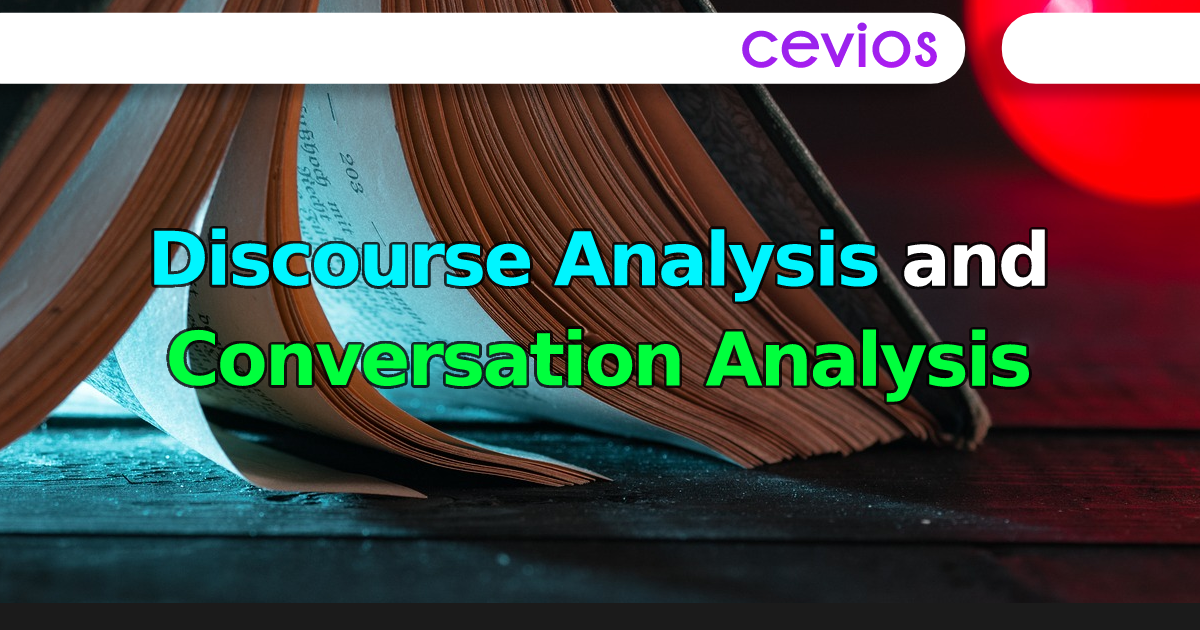Discourse Analysis and Conversation Analysis
Discursive Psychology
The epistemological commitment of conversation analysis – to begin with what the participants in the scene make visible to each other – is shared by Discursive Psychology. This is a movement, impelled by a number of hands, to make Psychology treat the traditional psychological topics of perception and cognition (seeing, remembering, knowing and so on) not, in the first place, as mental and individual matters, but as resources that people use: a person will avow a belief, challenge another’s veracity, test a third person’s knowledge, admit a faulty memory, and so on. This branch of Discourse Analysis, like others we have covered, comes in various versions. I will pick an illustrative example from what has probably been the most empirically productive form, the Discursive Psychology developed by Derek Edwards and Jonathan Potter (for programmatic statements of their project, see Edwards 1997, Edwards and Potter 1992, and Potter 2003).
Consider Edwards’ work on emotions (see, for example, Edwards, 1999). At first sight, emotions find a natural home in traditional Psychology: they are (surely?) subjective, directly experienced, irrational, stimulated by events in the world, and liable to vary in intensity and character according to classic psychological variables such as social and physical stimuli, mood, age, gender and so on. Yet, Edwards argues, to say all this is to put the cart before the horse. All these things are true not necessarily about emotions-inthe-head, but about emotions-as-traded-in-interaction. People (who, after all, predate psychologists) treat them as all of the above things, and psychologists have fallen into the trap of thinking they are all true. Edwards does not mean we should therefore replace a scientific study of emotions with a study of people’s folk-theories about emotion, or by asking them survey questions about what they think emotions are, or by recording their spontaneously offered definitions of emotions in natural talk and so on. Such things are of secondary importance. What is of prime importance is how people bring emotion terms into conversations (which may be mundane chat, or consequential events like police interrogations, marital counselling, psychotherapy, courtroom testimony and so on) actually to achieve their ends. To be sure, such ends will be served by the presumption that an emotion is internal, not rational and so on and so forth (or some distortion of this list, as circumstances demand) but that in no way guarantees the truth of the presumption, still less persuade us to give up the study of emotions in talk in favour of a possibly chimerical survey of emotions in the head.
We can put flesh on that argument by looking at a stretch of talk that Edwards reports from a marital therapy session, where one person’s descriptions of their spouse’s emotions have, of course, a high premium. Early in the session, ‘Mary’ describes what happened when she told her husband ‘Jeff’ of an affair she had had:
1 Mary: (. . .) so that’s when I decided to (.)
2 you know to tell him. (1.0) U::m (1.0) 3
3 and then::, (.) obviously you went
4 through your a:ngry stage, didn’t you?
5 (.)
6 Ve:ry upset obviously, .hh an:d uh,
7 (0.6) we: started ar:guing a lot, an:d
8 (0.6) just drifted awa:y.
Edwards invites us to notice how Mary trades on the presumptions of emotion-terms to accomplish a number of rhetorically powerful moves. Jeff’s reaction to Mary’s revelation was (according to her account) to be angry; she does not report his state of mind as a matter of reasoned appreciation, but of visceral reaction. Moreover she portrays this anger as your angry stage. This implies that Jeff is prone to a predictable chain-reaction of emotions that are sparked, then run their course. These two undercurrents, heavily implied but never stated, bear Mary’s narrative into the rhetorically clear waters of inevitable separation. As Edwards puts it:
In other words, Mary’s description of events, in just that way and at just that time, has socially important consequences for how her relationship is to be read, how her spouse’s role in proceedings is to be understood, and perhaps how the counselling will proceed. Deploying an emotion term was not a neutral matter of describing the world as it is and was, but a rhetorically-charged choice of a term that packed a punch, as any choice of description always does.
Edwards’ analysis here of the emotion term angry is a good example of the respecification that Discursive Psychology intends for the entire realm of ‘the mental’. It reminds psychologists that emotions, like any other ostensibly mental state of mind, may be allegedly owned in private, but are manifestly traded in public. This makes Discursive Psychology specially attractive for application to any discourse in which play is made of psychological terms, and that of course is a wide field. But we should notice that Discursive Psychology is not limited to the study of the use of psychological terms, common though such usage is. One consequence of its radically anti-cognitive strand is that it puts it four-square with other discourse analyses which see discourse as constitutive of social (and not just social) reality – see, for example, Potter’s Representing Reality (1996). Were space to permit, it would have been instructive to describe its close, ethnomethodologically- and Conversation Analytically-inspired investigation of people’s interested descriptions and accounts of events, for example in such charged encounters as the police interrogation (Edwards, 2006). In its concern for unpacking descriptions of reality, Discursive Psychology is applicable to discourse in its widest remit.

